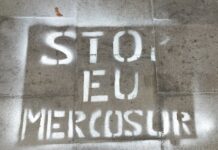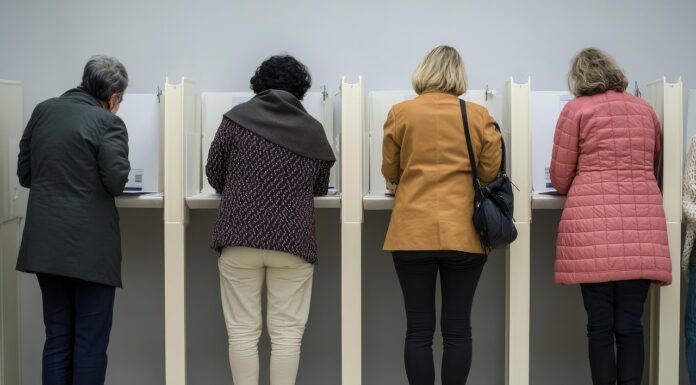
With the opening of the European tourist season, the EU-wide “COVID-19 certificate” has also entered into force today. The certificate, also dubbed EU Covid passport, consists of a QR code on smartphones or hard copy that indicates whether the person in question has been fully vaccinated with one of the EU-approved vaccines or whether he or she has been tested negative on Covid recently.
The idea does make sense at first glance: it is a simple, straightforward manner for EU authorities to check whether they should let someone cross the border from another EU state or not. Apart from Ireland, all EU member states have also managed to activate the system.
Summer’s taking its time🌦 but 🇪🇺 is ready as promised: at start 🛫 of #EUCovidCertificate all 30 EU & EEA countries are live connected to EU gateway and all except one issue certificates. A great collective achievement of @EU_Commission & EU countries! #StrongerTogether pic.twitter.com/YYmtYXCb83
— Johannes Bahrke (@jb_bax) July 1, 2021
We are bringing back the spirit of an open Europe.
As of today, EU citizens can get their #EUCOVIDcertificate issued and verified across the Union.
Check Re-open EU for the latest travel measures: https://t.co/mvhLXkLFmY#StrongerTogether
— European Commission 🇪🇺 (@EU_Commission) July 1, 2021
In reality, however, the system does not seem to function properly, while it carries grave dangers for future abuse.
Problematic functioning
Apart from some challenges with privacy restrictions and lack of clarity on how the Covid passport should be checked, which according to the airline industry may lead to “chaos at European Airports”, a more fundamental problem has overshadowed its launch: the lack of full vaccination and the emergence of new Covid variants.
Even travelers that have been vaccinated have now been banned by Germany from entering the country when they come from Portugal, where the so-called “Delta” variant of Covid has become dominant. This is despite the fact that also in Germany, the variant is spreading, as it is estimated that the variant could account for 90% of cases in Europe by August.
In the UK, the Delta variant accounts for 99% of new cases, but what is often overlooked is that hospitalizations and deaths have remained low despite of this, given that the UK has vaccinated more than 80% of the adult population with at least one dose.
Delta Variant has Dominated in the UK
COVID cases rising. BUT hospitalizations are NOT rising
Meaning vaccines work. Fear mongering doesn’t pic.twitter.com/gKfqAcLuY7
— Faheem Younus, MD (@FaheemYounus) June 27, 2021
The Moderna, Pfizer and AstraZeneca vaccines do offer significant protection against the Delta variant, according to studies by Public Health England, amongst others, but these are all relatively recent studies, which is unavoidable, given how the new variant only recently emerged.
Therefore, countries can be forgiven to not take any risk, especially as large parts of the population have not been fully vaccinated yet. Perhaps letting people in after they have been tested could still be considered, but letting vaccinated people in while it is not yet certain to what extent vaccines can deal with new variants, is many bridges too far for politicians under pressure.
The EU Covid passport can only work when vaccines beat all variants
This should lead to the conclusion that the EU Covid passport can really only function properly in a scenario where a high percentage of Europeans have been fully vaccinated – experts reckon that to deal with the Delta variant, a vaccination rate of 80% is required* – and when vaccines are certain to beat all Covid variants. However, in such a scenario, which may be the case by the end of Summer, the Covid crisis will really be over, so there won’t be any need for border checks, at least within Europe.
Still, then we may be stuck with that new system of Covid passports, which carries along some serious risks for civil liberties.
Risks for civil liberties
The European Commission itself has encouraged EU member states “to use [the EU’s vaccine certificate] not only for the free movement law… but also for all the possible national uses, for other purposes: to go to concerts, festivals, theatres, restaurants.”
Some EU governments are also doing that.
In Ireland, a vaccine passport for fully vaccinated citizens will be required to enter pubs and restaurants. Deputy PM Leo Varadkar admitted:
“We only ever planned to use vaccination passes for international travel. A huge amount of work has been done to get that ready in advance of July 19th. It was government policy not to use this for domestic services. This is a big change.”
In Austria, vaccine proof has also been required to enter a restaurant since mid May.
In April, Bill Wirtz already listed the many dangers with the idea of an EU vaccine passport on this website, highlighting data leaks and greater supervision by the authorities over citizens, amongst others. In effect, the reason why Ireland wasn’t able to comply with the EU regulation introducing vaccine certificates was … a cyber attack on the Health Service Executive.
Despite all these arguments, which were also expressed by the European network of human rights watchdogs, Liberties.eu, the European Parliament – as lame a check against EU overreach as ever – simply waved the measure through without much of a fuzz:
Which MEPs voted for the EU's "vaccine passport" (or EU #DigitalGreenCertificate), which may well effectively amount to checks within the Schengen zone: https://t.co/GCUli9iAMD pic.twitter.com/ymzg6cc5fl
— Pieter Cleppe (@pietercleppe) April 29, 2021
Time to scrap the EU vaccine passport
The Covid crisis will last in Europe as long as there is a degree of uncertainty surrounding how effective vaccines are against new strains and as long as the vaccination rate is not sufficiently high. There is good hope that this may only be until the end of this Summer, but of course we cannot know for certain.
Uncertainty about the effectiveness of vaccination against new strains however also affects the practicality of a Covid passport, which is based on trust that vaccines are effective.
Therefore, as long as the Covid crisis persists, to simply test travelers is the most effective means to avoid a flare-up of it.
In effect, a number of European countries, like the Netherlands and Spain, now already welcome Americans without even requiring a Covid test certificate, raising hopes that things may actually return to normal much more quickly than assumed.
India on its turn, has said it will only recognise the EU’s Digital Covid Certificate if the EU recognises Indian vaccines. This shows that even if there is certainty that all the vaccines recognized by the EU protect against all Covid strains, deliberations will be necessary on vaccines not recognized by the EU, in case the method of vaccine passports is used. Also here, a Covid test for travelers, or exemptions for “Covid-safe” countries, is probably the easier solution.
It is better to stop half way than to persevere in an error. Let’s scrap the EU Covid passport, before some of its more Orwellian applications are being rolled out.












